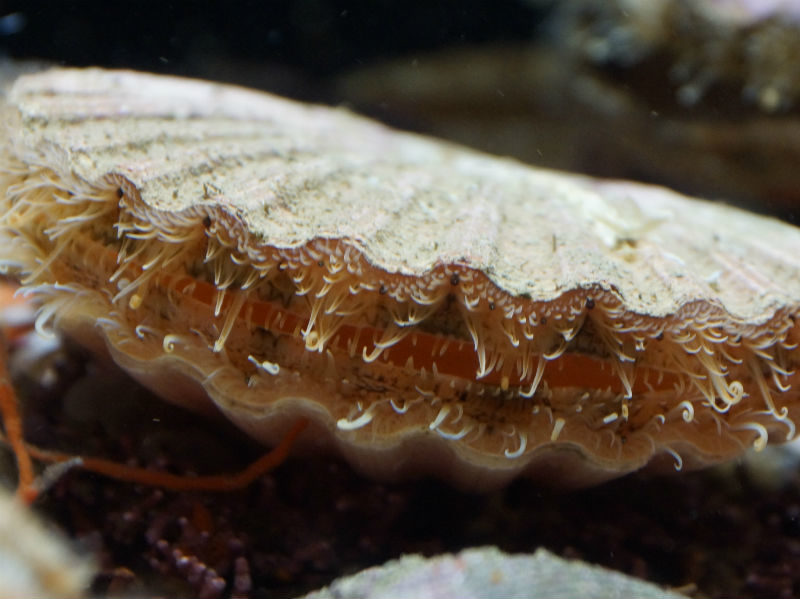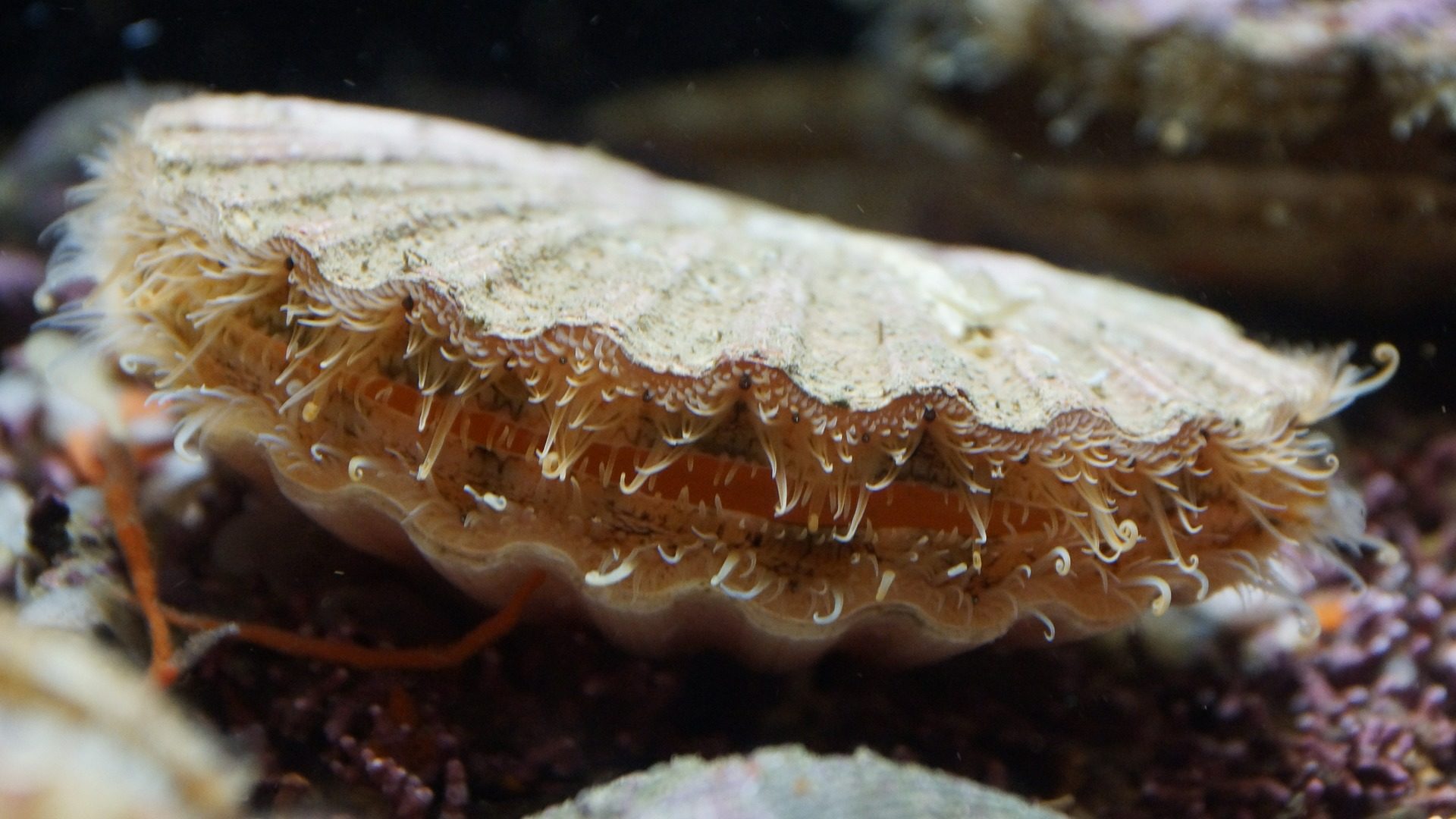
At the Ocean Conservation Trust, we are working towards a more sustainable future with our brand new scallop hatchery, with the aim of creating a diver collection-based fishery in Plymouth, Devon.
Working in partnership with Plymouth Marine Laboratory, our vision is to create a sustainable, diver collection-based fishery in Plymouth, Devon by breeding juvenile King Scallops on a commercial basis and releasing them into a fishery – not only protecting our seabed from damaging dredging, but creating jobs and generating revenue for the area, too.
Many of us enjoy eating seafood on a regular basis, but how much do you really know about what you’re consuming – and even more importantly, where it comes from?
1. King scallops are bivalve molluscs. The term “bivalve” is derived from the Latin “bis”, meaning “two” and valvae, meaning “leaves of a door”.
2. Their two shells are actually different shapes, one is curved like a bowl and the upper shell is flat like a lid. Generally, they can be found curved side down hiding into the sediment.
3. Scallops have between 50 – 100 eyes that are nestled into their mantle. These eyes appear be a bright blue colour and allow the scallop to detect light changes.
4. The scallop is the only bivalve that can ‘swim’. It does this by rapidly opening and closing its shell, producing a jet of water that allows it to move. They can, however, only perform 4/5 jump movements before needing a rest. Just enough to escape a predator!
5. The King Scallop can live for over 20 years
6. Similar to trees, Scallops produce growth rings. The method of counting these rings is commonly used to age Scallops.
7. Scallops can actually reproduce by age 2, but they do not produce many eggs or sperm until they are around 4 years old.
8. King scallops are true hermaphrodites. The gonad (also known as roe) can contain over 100 million eggs. The pink/orange part is female and the white part is male.
9. King scallops are filter feeders. They feast on phytoplankton, algae, and other micro-organisms.
10. They are a fantastic, healthy and sustainable source of seafood and contain B12, protein, omega-3 fats, magnesium, potassium and zinc!

